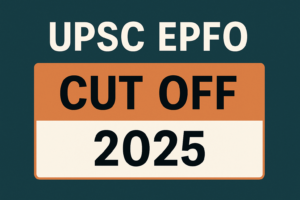Table of Contents
Q12. Dr. Srinivasan is a senior scientist working for a reputed biotechnology company known for its cutting-edge research in pharmaceuticals. Dr. Srinivasan is heading a research team working on a new drug aimed at treating a rapidly spreading variant of a new viral infectious disease. The disease has been rapidly spreading across the world, and the cases reported in the country are increasing. There is huge pressure on Dr. Srinivasan’s team to expedite the trials for the drug, as there is significant market demand for it, and the company wants to get the first-mover advantage in the market. During a team meeting, some senior team members suggest taking shortcuts to expedite the clinical trials and obtain requisite approvals. These include manipulating data to exclude negative outcomes, selectively reporting positive results, foregoing the process of informed consent, and using compounds already patented by a rival company, rather than developing one’s own component. Dr. Srinivasan is not comfortable taking such shortcuts, but at the same time, he realises that meeting the targets is impossible without using these means.
- What would you do in such a situation?
- Examine your options and consequences in light of the ethical questions involved.
- How can data ethics and drug ethics save humanity at large in such a scenario? (Answer in 250 words)
Introduction
As the NITI Aayog’s Ethical Guidelines for Biomedical Research on Human Participants points out, “Ethical research is crucial not only for the safety of participants but for maintaining public confidence in scientific advancements.” Upholding ethical standards in drug development is essential for patient safety and long-term credibility.
|
Stakeholders:
|
a) My course of action:
- In this scenario, I would prioritize ethical principles like integrity, transparency, and patient safety.
- I would ensure that my team adheres to ethical practices, refuses to manipulate data, and respects informed consent and intellectual property rights.
- I would also explore ways to speed up the process without compromising these ethical values, such as collaborating with external institutions or seeking emergency approval.
b) Options available and the consequences:
Option 1: Follow the shortcuts suggested by the team
Merits
- First – mover advantage: Company could gain a first-mover advantage in a competitive market, similar to the rapid development of certain treatments during the COVID-19 pandemic.
- Profits earning: Faster rollout might boost company revenue in the short term.
Demerits
- Crisis of conscience: It will create a crisis of conscience by not following the highest ethical principles.
- Public health risks: Manipulating data could lead to dangerous side effects.
-
-
- E.g.: Ranbaxy scandal, where falsified data led to unsafe drugs being sold in the U.S.
-
- Loss of public trust: Once public trust is lost, it’s hard to regain.
-
- E.g.: Johnson & Johnson talcum powder case.
Option 2: Refuse to take shortcuts and adhere to ethical standards
Merits
- Patient safety: Would respect the principles of beneficence and autonomy, ensuring that patients are treated with dignity.
- Goodwill and credibility: Maintaining ethical standards strengthens the company’s reputation.
-
-
- E.g.: Tata Group is known for prioritizing ethics over short-term gains.
-
- Upholding justice: Refusing to use patented compounds illegally reflects a commitment to justice and fairness.
Demerits
- Financial loss: Slower progress could result in reduced revenue, especially in a highly competitive pharmaceutical market.
- Delayed access to potential treatment: Patients may suffer in the short term due to delayed access to the drug.
Option 3: Seek a middle ground by expediting the process ethically
Merits
- Public trust: Helps in creating public trust in the long run.
- Integrity and transparency: Transparency with the public and regulatory bodies demonstrates virtue ethics, promoting trust in the research process.
- Upholding collaborative ethics: Partnering with other institutions enhances resources and fast-tracks innovation while adhering to the principles of justice and fair competition.
Demerits
- Increased operational complexity: Collaborating or seeking emergency approvals may create practical challenges, such as higher costs and longer bureaucratic procedures.
- Delay in approvals: There may be the case of further delays.
c) Role of Data ethics in saving humanity
- Integrity and honesty in data reporting: Ethical responsibility demands that all data, whether favourable or unfavourable, be reported truthfully.
- Building trust in healthcare systems: In the long run, adhering to data ethics builds public trust in healthcare systems.
- Ensuring Justice and Equity: Data ethics also ensures fairness by presenting accurate outcomes that benefit all sections of society,
Role of Data ethics in saving humanity
- Integrity and honesty in data reporting: Ethical responsibility demands that all data, whether favourable or unfavourable, be reported truthfully.
- Building trust in healthcare systems: In the long run, adhering to data ethics builds public trust in healthcare systems.
- Ensuring Justice and Equity: Data ethics also ensures fairness by presenting accurate outcomes that benefit all sections of society,
Conclusion
Therefore, by embedding ethical principles into every aspect of pharmaceutical research, the industry can ensure that its advancements serve the greater good, ultimately leading to a healthier and more equitable society.


 UPSC EPFO Result 2025 Out: EO/AO and APF...
UPSC EPFO Result 2025 Out: EO/AO and APF...
 UPSC CSE Interview Schedule 2025: Dates,...
UPSC CSE Interview Schedule 2025: Dates,...
 UPSC EPFO Cut Off 2025 (Expected): Categ...
UPSC EPFO Cut Off 2025 (Expected): Categ...

























